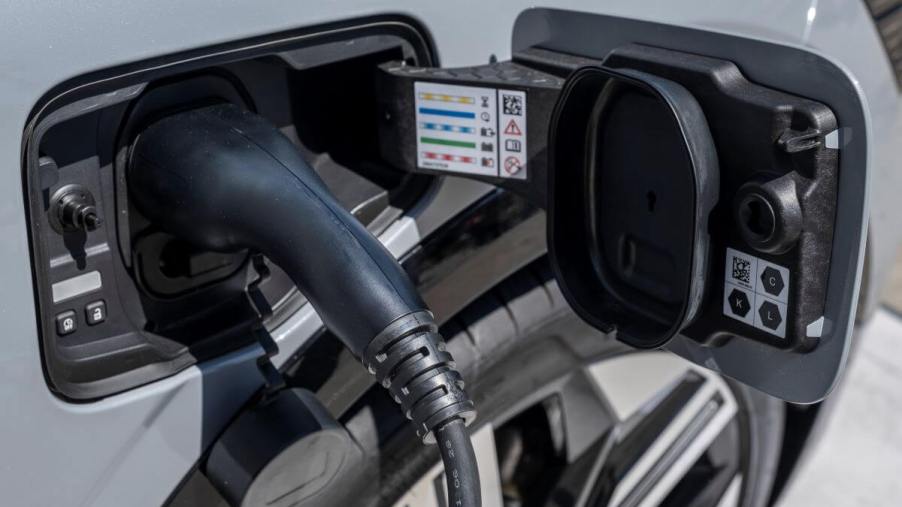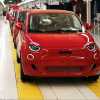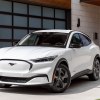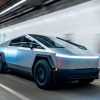
A Famous EV Supporter May Have Cooled a Little on the Idea
Rowan Atkinson may be most well-known for driving around in a classic Mini Cooper creating ludicrous hijinks as Mr. Bean, but the actor and comedian is a true car nut, and has been collecting cars and writing about them for decades. Given his love for cars, not to mention a degree in electronic engineering, Atkinson was an early adopter of the EV movement.
However, his latest musings on the EV segment are less than rosy, and his opinions on the subject are likely shared with many of his fellow EV early adopters.
Why Rowan Atkinson feels slightly ‘duped’ by the EV push
Atkinson’s latest opinion piece published by The Guardian on June 3, 2023 showcases the star feels that regulations banning the sale of internal combustion cars may not be the most sound environmental approach, even if EVs traverse the roads with zero emissions.
Atkinson writes that EVs are “wonderful mechanisms” that are quiet, economical to operate, and speedy, even if they are a bit “soulless.”
“But increasingly, I feel a little duped,” Atkinson writes. “When you start to drill into the facts, electric motoring doesn’t seem to be quite the environmental panacea it is claimed to be.”
Atkinson takes issue with the UK’s ban on the sale of new internal combustion cars beginning in 2030. He writes the focus of zero emissions has unjustly outweighed the total environmental impact of electric vehicles.
He cites a Volvo study deducing the greenhouse gases associated with producing an electric vehicle are about 70% higher than manufacturing a traditional, ICE car. This is due to the rare earth metals found in EV’s lithium-ion batteries, increased energy requirements to manufacture these batteries versus petrol engines and their estimated lifespan of about a decade.
“It seems a perverse choice of hardware with which to lead the automobile’s fight against the climate crisis,” Atkinson wrote.
Atkinson also notes that solid-state batteries are still years away from being a viable option, so models fitted with lithium-ion batteries will be in driveways in garages as “overweight electric cars with rapidly obsolescing batteries.”
Hydrogen-powered fuel cells could be an appealing alternative, Atkinson writes, especially in trucks, though he states an environmentally sound way of producing hydrogen for automotive use has yet to be found.
A car’s life cycle has major implications
Atkinson takes many car buyer’s preferences to task. He writes cars have become a victim to “fast fashion” sales in which many buyers sell their cars after just a few years of ownership, which he calls a “outrageously profligate use of the world’s natural resources.”
Atkinson argues that the number of cars that exist today — 1.5 billion, according to his article — have already made their environmental impact in terms of manufacturing. He says a solid approach to reducing overall environmental issues would be addressing how to lower these cars’ pollution versus sending them to the scrapyard to be replaced by an EV that has zero emissions but more significant impacts to the environment in its production.
Atkinson seems to subscribe to the idea an environmentalist told him to buy an old car and use it less for a lesser automotive impact on the environment.
Atkinson gives his take on the path forward
Atkinson states he feels the honeymoon era of EVs is coming to an end, and that’s inspiring the automotive industry to look at other alternatives. He believes hydrogen power and synthetic fuels should be developed to keep older internal combustion cars on the road while stating buyers should recognize the longevity of new cars and keep them for longer versus springing for a new model every few years.
However, he states someone with an older diesel that belches out plenty of harmful emissions should consider the switch to an EV. But that shouldn’t be the only solution, he suggests.
“Electric propulsion will be of real, global environmental benefit one day, but that day has yet to dawn,” Atkinson writes.
Ultimately, Atkinson’s views on the future of lower or zero-emissions driving are measured and respectable. He isn’t dismissing the EV as a solid solution for addressing climate change as it relates to automobiles, but he doesn’t believe there is a single path forward as EVs—even if EVs have served as sole flagbearer of reducing automotive emissions among legislators.



